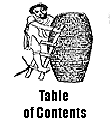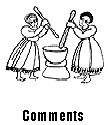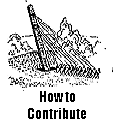
 #4: What was the principle cause for the chasm between young and old that evidently became unbridgeable by 1974? Why was the division so profound and virulent at that particular time and not during other transitional (in terms of generations) periods such as the 1950s or 1990s?
Berhanu Yalew Yihun Pre-modern autocracies face a terrible dilemma: (1) modernize or die–you need a modern civil service to navigate the new global system. However, doing so also tragically means (2) modernize and die–the very products of your modernization programs will question your legitimacy and topple you down! Hence, the sad fate of Emperor Haile Selassie in the hands of the children of his ‘ungrateful’ vassals. 1950s: the tiny elite was shamefully co-opted–life was too good to rebel against the status quo. Frankly, I long for the 1930s–how progressive those "Japanizers" were! 1960s and 1970s: the educated elite was bigger and life was less rosy; the faint echo of worldwide radical movements was felt in a distorted form; schools produced ‘trained’ people rather than ‘educated’ people with a good understanding of the challenges of modernity and appreciation of the country’s history. Sad but true, the modern (read: Western) educational system also created a disjuncture between generations. I did not grasp its significance then (how infantile of me!), but my parents effectively ceded authority over me (or deferred to me, to my surprise) after about 9th grade–they assumed I knew more than they did!! I was civilized; they were not. Yegna lij selettene–dinqem! What incenses me whenever I ponder the reasons for the country’s failure to modernize are the behavior of the Western educated as well as the city-bound feudal lords who brought up their kids to disdain Ethiopian values and traditions wholesale. The new elite, having been severed from their rural roots by HSI’s centralization drive, naively equated silitane with the superficial trappings of Westernization (read: bastard modernity or ferenjism) and deprived the country of its promising leaders by giving them up to drugs, indolence, ignorance and Paris cafes. 1990s: Has this generation, a product of socialism, done anything that I should be aware of?! Oh, no, I sense too many seledawoch (or are they flat screens?) flying in my direction.
Dr. Fekade Azeze One principal cause is the permanent lack of transparency in our society- the prevailing sem enna werq (wax and gold) tradition in individual, family, group, village, community, office life, in the media and, in short, in national life. Even the so-called revolutionary student movement lacked transparency among its members and in the "rank and file" of the student body. It is true that common slogans were shouted out in meetings, rallies and demonstrations. However, we are now told that interest groups were setting up their own separate agendas behind closed doors. No doubt that many innocent Ethiopians sacrificed their lives then and some are doing the same now. This was how it was, and this is how it is now. I have no satisfactory reason to think today is much more different than yesterday. Under these circumstances therefore it is difficult to think of a close meaningful relation between the young and old in the first place. In fact, rather than talking about a break in continuity (I guess that is what "chasm" is) we should try reflect or seriously research the nature of the relationship between these groups. I wonder whether there ever was any serious, deliberate, purposeful dialogue and bond between the two at various levels of life starting with the family. Let’s also reflect about the kind of relation we had with our elders in our school and university days. There is a lot of sweet memory that demands some careful and dispassionate revisiting. What happened during and after 1974 can only be examined within this scenario, I think.
Ato Gaitachew Bekele
|

|

|

|

|

|
| © Copyright SELEDA Ethiopia, July/August 2002. All Rights Reserved. |
